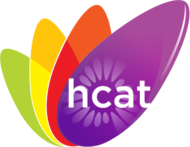Music
Intent
Music allows children to develop their own self confidence within an expressive art form and to consider the contribution of others to the group. Music has its place alongside the other arts subjects and is well integrated into the school curriculum. We aim to develop a curiosity for the subject as well as an understanding and acceptance of the importance of all types of music.
Implementation
Why the Charanga curriculum?
The Charanga music scheme provides teachers with week-by-week lesson support for each year group in the school. It is ideal for both specialists and non-specialists as it provides lesson plans, assessment, clear progression and engaging and exciting resources to support every lesson. It supports all the requirements of the national curriculum.
Implementation
Structure of the scheme
Each unit of work comprises of strands of musical learning which correspond with the national curriculum for music.
- Listening and Appraising
- Musical Activities
- Warm up games
- Optional flexible games
- Singing
- Playing instruments
- Improvisation
- Composition
- Performing
How children learn
It enables children to understand musical concepts through repetition. Learning the same musical concept through different musical activities enables a more secure, deeper learning and mastery of musical skills. Over time, children can both develop new musical skills and concepts and re visit established musical skills and concepts. It provides children with a deeper understanding of musical skills and concepts.
How our music curriculum aligns with Best Start in Life
Substantive Knowledge: For example, understanding musical elements such as pitch, rhythm, melody and dynamics.
Disciplinary Knowledge: For example, learning how to compose a simple melody using notation or evaluating a piece of music critically.
Component Knowledge: For example, clapping rhythms to internalise beat before moving on to playing percussion instruments.
Foundational Knowledge: For example, singing nursery rhymes to develop pitch recognition and language acquisition.
Music in our school supports:
Language development: Rhymes, songs and rhythm build vocabulary and phonemic awareness
Social Skills: Group singing and music making encourage cooperation and turn taking.
Physical development: Movement and rhythm enhance coordination.
Impact
The Music curriculum aims to develop pupils’: confidence to be creative, innovative, thoughtful, skilful and informed musicians. skills to listen, improvise, compose, interpret, perform, and respond with intent and purpose.
Click the link below for a further detailed plan:
Music Development PlanBrass Long Term PlanGlockenspiel planning Year 3



